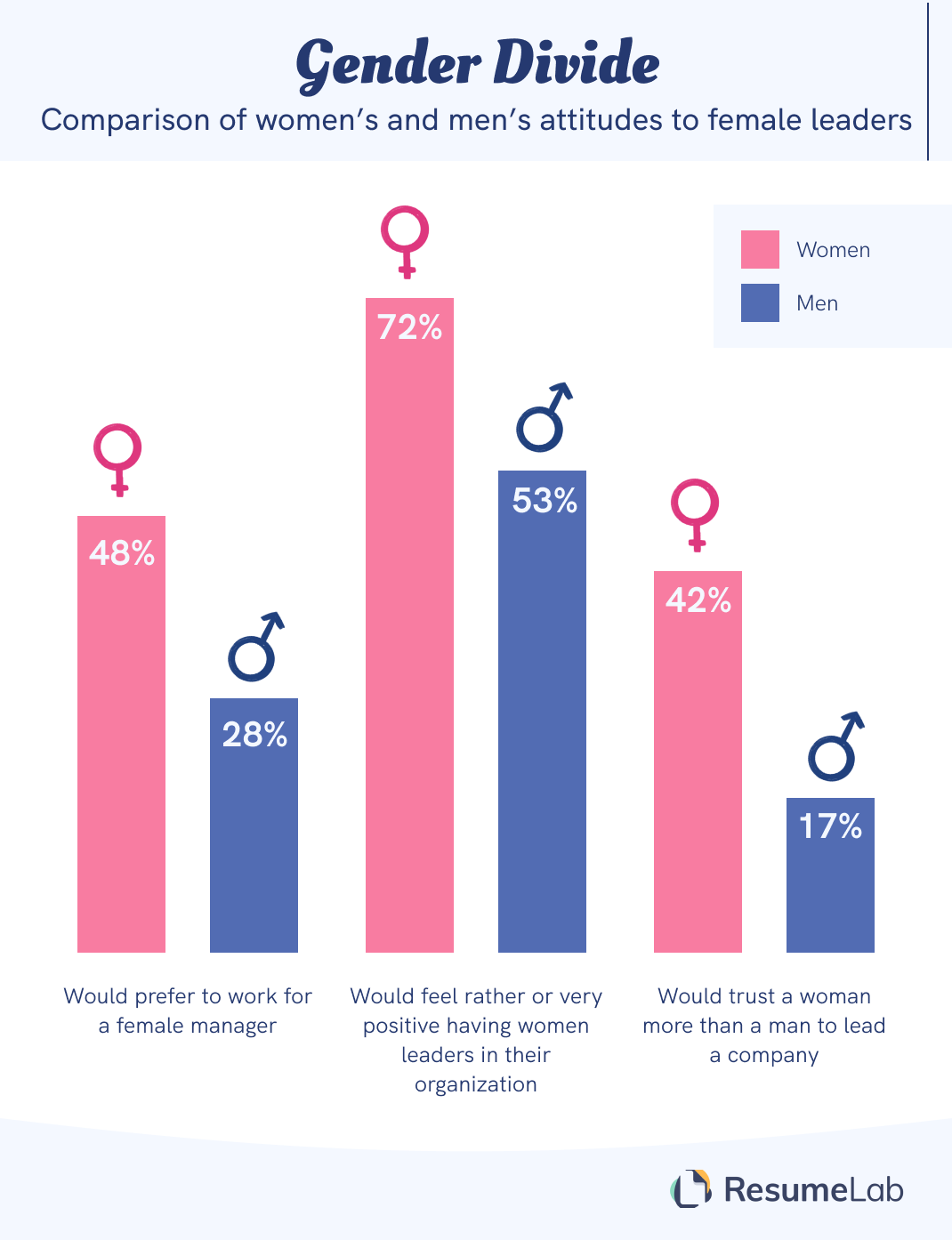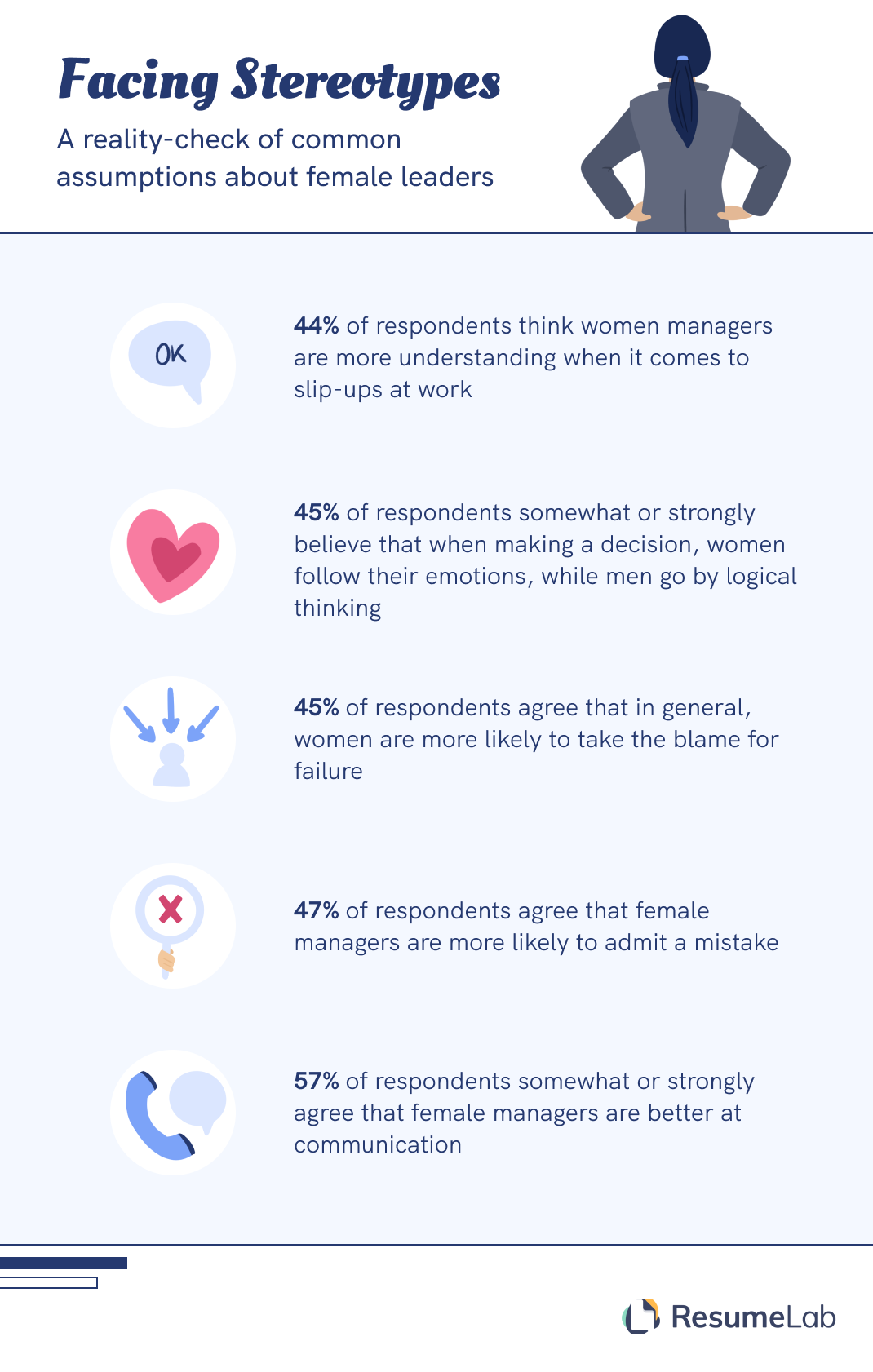While we’d love to reassure aspiring female leaders that opportunities are more equal these days, women in leadership positions continue to be burdened by expectations and stereotypes.
In most industries, the glass ceiling is still intact and there’s still some way to go to achieve management equality. ResumeLab wanted to explore what workers today think about female leaders so they asked 800 people for their views and experiences. The results were somewhat revealing.
Contents
Opinions of female leaders
When we look at the science, it’s clear that women tend to be effective managers. In fact, there are numerous studies that show women confidently outperforming their male management counterparts as they are generally better at driving employee engagement.
However, while science and reality point to women being effective leaders, our gender stereotypes and prejudices are lagging behind. For example, women in managerial positions are held to higher standards than men according to 55% of respondents.
While expectations for female leaders is high, respondents were generally positive about their effectiveness.


The stereotype of being caring
Women face the same pressures of professional success as men but the stereotype of the “caring female” is another battle. This old stereotype is very much alive and well, demonstrated by respondents’ choices about which industries are most suitable for women:
- Health Care: 65%
- Education/Library: 61%
- HR industries: 53%
- Finance/Real estate/Insurance: 51%
- Office administration: 51%
- Personal care/Social services: 51%
- Arts/Design/Fashion: 51%
The gender divide in opinions
When broken down by gender, ResumeLab found there was a significant difference in how much people trust and feel positive about female leaders.
Here’s a comparison of women’s and men’s attitudes to female leaders:


As the graphic shows, men trust female leaders much less than women do. This could be due to lingering beliefs that women just aren’t suited to managerial positions or it could reflect men’s fear of losing out to a woman at work and struggling to accept female authority. While the reasoning is unclear, the statistics cannot be denied.
Common assumptions about female leaders
One of the biggest hurdles for women in leadership positions is facing old fashioned gender stereotypes. Out of those surveyed, for example, 45% somewhat or strongly believed that women follow their emotions while men go by logical thinking when making a decision.
There are, however, some positive stereotypes for female leaders. These include being better at communication (according to 57%) and more understanding of mistakes at work (44%).


Moving forward
The results of this study aren’t all bad for women who aspire to leadership positions. Generally, the acceptance of female leaders has improved over the years but there’s still some way to go. Women leaders still have a tough fight ahead to achieve equality.









